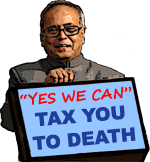The author is enthused by the impending training programme for the Hon’ble Members of the Tribunal on “International Taxation and Transfer Pricing“. It is a step in the right direction he says and adds that the time is opportune for all stake-holders to contribute their thoughts on how to improve the functioning of the Tribunal. On his, part, the author cannot resist the temptation to list a few issues that need to be paid attention to for making the Tribunal’s functioning even better than it is today
Income-tax Appellate Tribunal which was founded on 25th January, 1941 has completed its 72 years of existence, and it is for the first time President of ITAT, has taken initiative to hold a Residential Refresher Course for Hon’ble Members from 11th August to 20th August, 2012 at Maharashtra Judicial Academy & Indian Mediation Centre & Training Institute, Bhayandar. I am pleased to know that the Hon’ble Members will be discussing in details the law relating to International Taxation issues and Transfer Pricing. The Hon’ble Members will also be learning Yoga as well as spiritual knowledge by the guidance of experts in the field. For this innovative Residential Refresher Course contribution of Hon’ble President and Vice-Presidents deserves to be acknowledged. According to me, this should be the annual feature.


